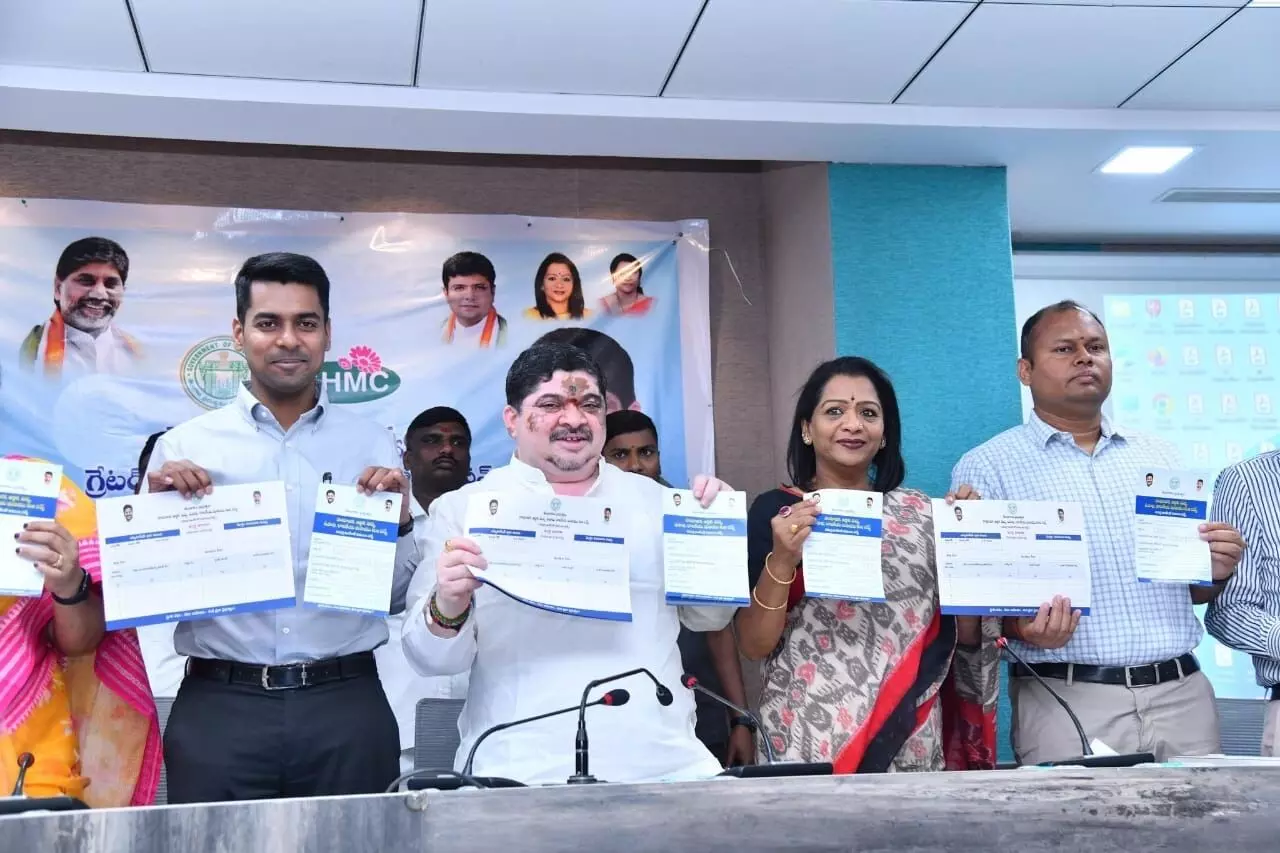Telangana govt's caste survey begins today
The information would remain confidential and the survey is aimed at removing inequalities and ensuring equal justice to all
By Newsmeter Network
Telangana govt's caste survey begins today
Hyderabad: The Telangana government's comprehensive socio-economic, employment, political and caste survey, an election promise of Congress leader Rahul Gandhi, began on Wednesday.
Chief Minister A Revanth Reddy described the survey as a 'yajna' to achieve social justice for the oppressed classes and equality of opportunities.
The massive exercise that began on Telangana soil is an "adventure" that will change the country's social outlook under Rahul Gandhi's leadership, he said on 'X'.
Official sources said house listing would be carried out in the first phase of the survey from November 6 to 8 in every enumeration block followed by household survey from November 9 in the second phase.
Deputy Chief Minister Mallu Bhatti Vikramarka said as many as 94,750 enumerators and 9,478 supervisors have been selected across the state. Each enumerator would cover 150 households.
Training has been given to both the enumerators and supervisors, he said.
Observing that the survey aims at realising the goals of equality of opportunities and social justice as mentioned in the Constitution, he appealed to the citizens to furnish information to the enumerators for the "noble cause".
"This caste survey is to understand the various sections of society, what is their political, economical, social status, and whether they are able to receive the resources, opportunities other things equally or not," he told reporters.
#Hyderabad---Minister for Backward Classes Welfare @Ponnam_INC, along with @GHMCOnline Mayor @gadwalvijayainc launched a comprehensive #CasteCensus at the #GHMC office here on Wednesday.The survey is to assess the social, economic, political, caste and educational status of… pic.twitter.com/9BLKJfzQvH
— NewsMeter (@NewsMeter_In) November 6, 2024
"Once the entire survey is done, we would be able to understand if the wealth of the state, power of the state and other revenues are equally accessible to the people or not," he said.
The survey collects information on households with 56 main questions and 19 supplementary questions.
The queries in the survey relate to religion, caste, marital status, educational qualifications, work, annual income etc. of the members of the household.
One of the questions is whether the members of the family are able to visit the local temples/mosques/churches/other places of worship freely without any discrimination and threat.
Assuring that the data received as part of the survey would be kept confidential, Vikramarka said the citizens need not have any doubts in sharing information.
"Once the entire survey is completed, we will announce what the present status of the society, of all the communities, of all the people of society," he said.
Rahul Gandhi, who attended a meeting organised by Telangana Congress on the caste survey on November 5, said he is fully committed to ensuring caste census in Telangana and in making the state a model for caste census in the country.
State Transport Minister Ponnam Prabhakar, who kicked off the survey at the Greater Hyderabad Municipal (GHMC) office, urged the citizens to furnish information to the enumerators without any apprehensions.
Describing the survey as a "historic" decision, Prabhakar said the exercise would show the path to the country in the days to come.
The data would be used to run the government to ensure that people get a due share in the fruits of development as per Rahul Gandhi's slogan of determination of share proportional to population, he said.
State IT Minister D Sridhar Babu, who attended the event at Shankarpally near here, said the survey would help the government chalk out plans for the welfare and development of various sections of society.
Inputs from PTI